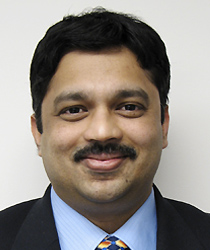Pines and Raghavan Honored for ‘Translating Research Into Products and Services That Improve Lives’
A gentle 10-volt electric pulse can make soft hydrogels bond instantly—and reversibly—to tissues from animals and plants alike, opening new doors for suture-less surgery and bio-hybrid materials.
At the A. James Clark School of Engineering, we honor the contributions of Black engineering trailblazers, whose accomplishments improve our society through innovation and leadership.
Study reveals a method to stick hard and soft materials by applying electrical currents.
Chemical engineers develop a new technology that could increase energy density and safety of consumer electronics.
Hydrogel sheets can absorb 100 times their weight in water
Gelatin-starch hydrogel could protect more than eggs in future applications.
At Innovate Maryland, Pines heralds turning 'expertise into action'
Raghavan and Borden created suture-free adhesive for wounds out of biopolymer gel.
The winner will be announced at a ceremony on May 10.
Study, published in Advanced Functional Materials, could enable the synthesis of drugs or diagnostic nanoparticles in unconventional settings such as the battlefield or on a spacecraft.
Using an electric field, polymer gels can be adhered to animal tissue, a discovery that could revolutionize surgery.
BIOE alum, advisory Board member Matt Dowling is the founder of Medcura, Inc., which commercialized Rapid-Seal
Engineering Alum’s Rapid-Seal Now Available In Stores, Online
ChBE Alumni Joseph Sciamanna ('19) discusses how his stint at UMD led to the founding of his first company.
Maryland’s Future 20 is a list of startups that have the potential to be the state’s next major business success story.
Funded teams feature UMD faculty from 15 academic departments and six centers and institutes
Among the nine 2017 Invention of the Year award nominees, six are led by or include Clark School researchers.
Associate Professor Silvia Muro (Joint, IBBR) and fellow UMD researchers are working to improve oral drug delivery to targets by protecting against the effects of gastric conditions.
Program supports students interested in environmental research.
Startup to pitch its football glove-restoring gel at Under Armour HQ.
Raghavan group’s efforts part of Gulf of Mexico Research Initiative.
Grip Boost gel restores gloves to like-new condition for a fraction of the cost of new ones.
BioE Assistant Professor Javier Atencia Named Professor Venture Fair Winner
New technique could be used in tissue engineering, 3D cell culture.
Quick-Drying Adhesive Coating for Athletic Gloves
Green technologies, oyster farming, Chesapeake Bay-saving and medical inventions dominate the funding round.
Polymer grafts can be custom-fitted, promote tissue growth.
Clark School startup receives funding to support production, testing of new research tool.
Remedium Technologies Inc. receives small business grant from National Science Foundation.
Participating faculty help Maryland companies develop technology products.
Single "smart material" with multiple properties could have applications in bioengineering, consumer products.
NSF funding for research to improve spray technology, creation of x-ray center for nano research.
Interdisciplinary scientists find a "soft and squishy" common ground.
"Exceptional sophomores and juniors" chosen from nationwide field of applicants for $6K-$10K internships.
Ragahavan, colleagues create UV-curable polymer that more effectively separates cells from serum.
Lab-on-a-chip produces, assembles microparticles in customized order; could be used for drug discovery.
NAE invites nation's exceptional young faculty members to share innovative ideas and approaches.
Undergrads nominate teachers for their approachability, concern and support for students.
Briber leads effort to develop new instrumentation, measurement techniques.
Raghavan group aids development of non-toxic oil recovery agent.
Clark School faculty start-up wins with rechargeable, flexible, thin-film battery technology.
Five Clark School-affiliated companies named finalists for Incubator Company of the Year.
Blood-clotting foam takes top prize in security division.
Student start-up company’s blood-clotting foam "most promising" in international competition.
Bone tissue engineering technology takes top prize.
Endowed professorship in chemical engineering supported by alumni gift.
New biomaterial designed to stop bleeding.
Research part of work by Raghavan group and student startup.
Three winners chosen among nine finalists.
Raghavan group develops new type of light-based viscosity switch.
Five Clark School faculty members receive tenure effective summer 2007.
Five Clark School faculty received National Science Foundation Faculty Early CAREER Awards.
